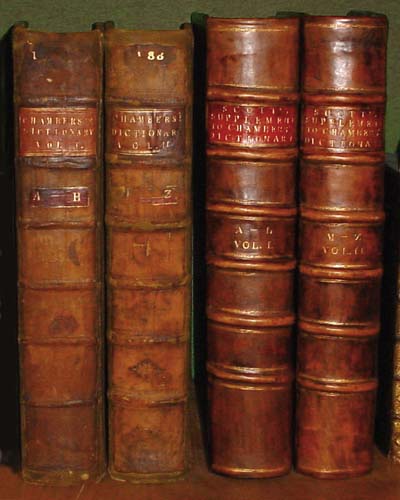

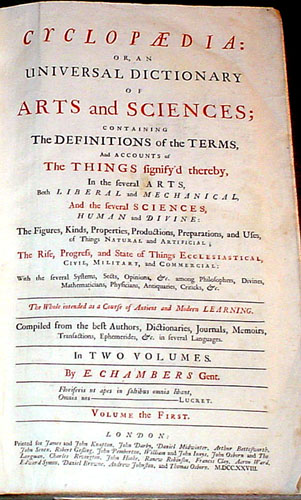
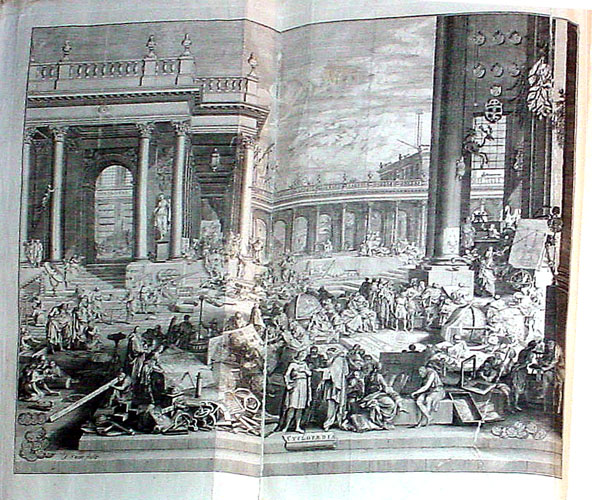
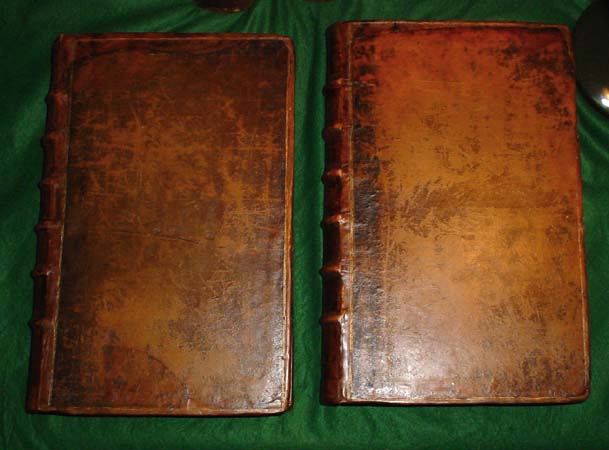
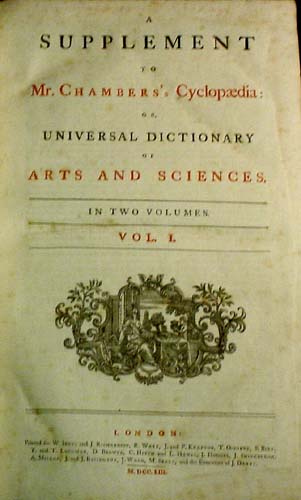
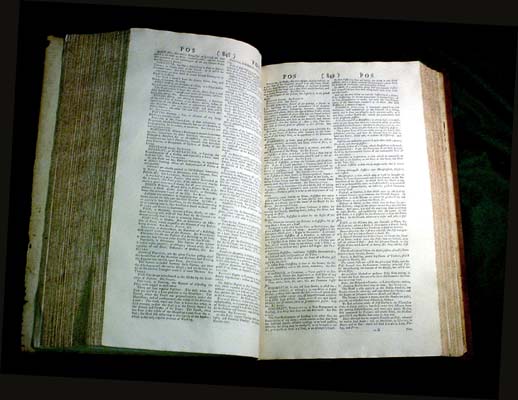
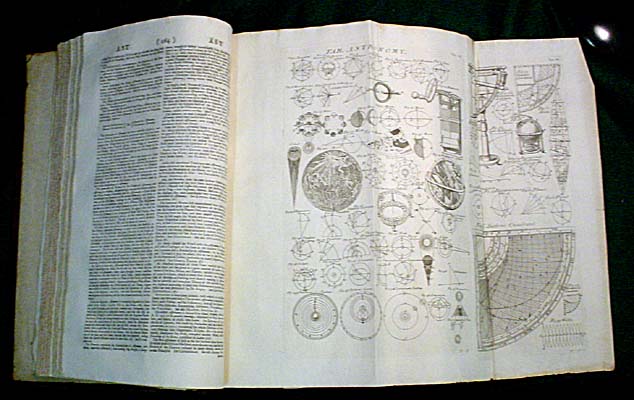
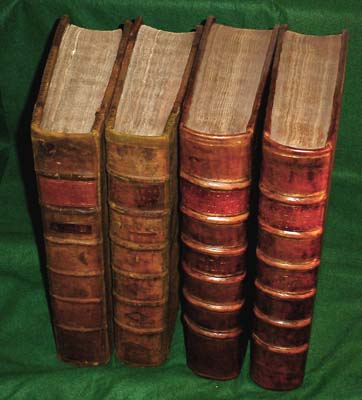
CHAMBERS, Ephraim. Cyclopaedia:
or an Universal Dictionary of Arts and Sciences; containing the definitions of the terms and accounts of things signify'd thereby, in the several Arts, both Liberal and Mechanical, and the several Sciences, Human and Divine: the Figures, Kinds, Properties, Productions, Preparations, and Uses, of things Natural and Artificial; the Ri...
London, John and James Knapton, 1728
[together with:]
A Supplement to Mr. Chambers's Cyclopeadia: or, Universal Dictionary of Arts and Sciences. In Two Volumes ... London, W. Innys and J. Richardson, 1753.
1728 Four vols, folio; with 20 large engraved plates, mostly folding, to the first two vols (anatomy plate browned, as usual) and 12 double-page engraved plates at the end of vol. IV; titles printed in red and black; in vol. I, tear across folding allegorical frontispiece, with slight damage, repaired and short corner tear to *T (no loss); in vol. II, minute hole to 5X, affecting three letters, corner of 4B2 torn away with loss of c.6 letters with another short tear on same leaf (no loss), and small hole to 5E1 (text unaffected); tears to Ship of War plate (crudely repaired) and Microscopical Objects (no loss); edges of plates browned, with the occasional stain or cropped margins; contemporary calf, worn, repaired in places, rebacked preserving the original spines where possible.
First edition of all four volumes. The two Supplement volumes form a very important complement to the main work, though they are seldom found with it. The content was based on notes left by Chambers on his death, which were then expanded by the mathematician George Lewis Scott and others. Subsequent editions of the Cyclopaedia were issued as four-volume sets, incorporating the Supplement.
Ephraim Chambers (c.1680-1740), apprenticed to a London cartographer, 'was seized by the idea that Harris's Lexicon needed bringing up to date and that he was the man to do this 'work so seemingly disproportionate to any single person's experience. A good French scholar, he adapted MorÈri and Bayle to the common-sense climate of the English Enlightenment. Moreover, he introduced a novel device that has proved indispensable to every subsequent lexicographer and encyclopaedist, namely, cross-references; so that "a chain may be carried on from one end of an art to the other"' (PMM).
'Though to Harris must go the honours of compiling the first true English encyclopaedia, Chambers is clearly the father of the modern encyclopaedia throughout the world' (Collison, p. 103).
Regarding this fundamentally important work, Walsh has written: 'Although the Cyclopaedia is now but a landmark in the history of encylopedia publishing, its impact and influence upon later generations was incalculable. It directly influenced the famous French EncyclopÈdie of Diderot, and the New Encylopaedia compiled by Abraham Rees and published between 1802 and 1820 ... Less directly, the pioneering example of the Cyclopaedia stimulated the publication of the Encylopaedia Britannica and many subsequent works' (Anglo-American General Encylopedias, quoted in Alston).
Alston III, 535; O'Neill C-26; PMM 171 (b); this edition not in Kennedy
Price: GBP 17,500.00
offered by:
Bernard Quaritch Ltd.
5-8 Lower John Street, Golden Square
LONDON, W1F 9AU
GREAT BRITAIN
(Member of ABA , SLAM , AILA)
P: Lord Parmoor
Tel. (020) 77 34 29 83
Fax (020) 74 37 09 67
E-mail: orders@quaritch.com
Internet: www.quaritch.com
VAT nr. GB 539 0733 36
Autographs - Incunabula - Science - Travel - Islamic - Manuscripts - Social Sciences - Art and Architecture - English and Foreign Literature
# Catalogues
* Mon - Fri 9.00 am - 6.00 pm

| see Chambers's CYCLOPAEDIAS | see CYCLOPAEDIA Plates |